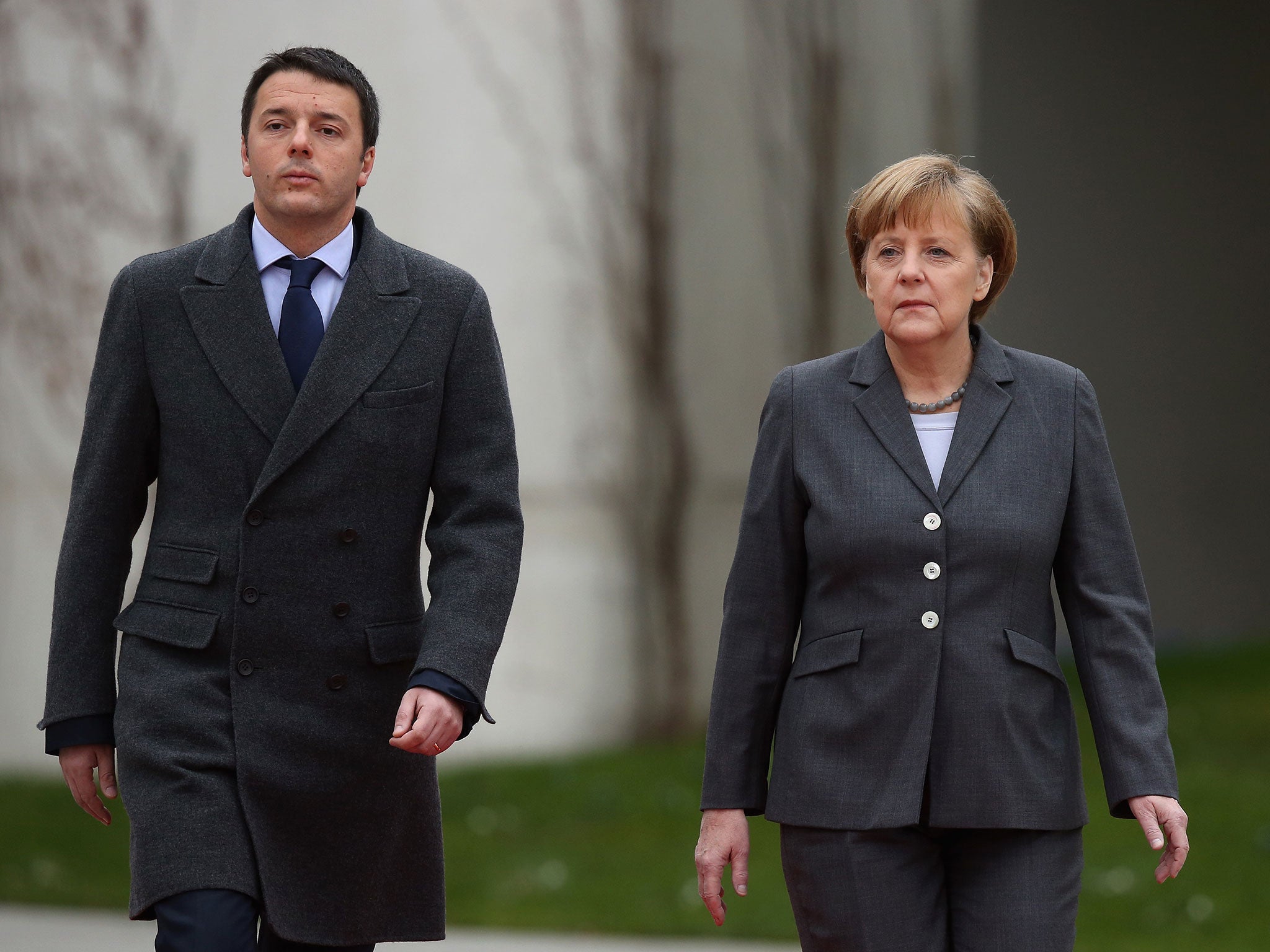Italy 'preparing to cause trouble' for EU as relations with Germany sour
Rome says it will no longer be intimidated by 'soundbites' from Berlin

Your support helps us to tell the story
From reproductive rights to climate change to Big Tech, The Independent is on the ground when the story is developing. Whether it's investigating the financials of Elon Musk's pro-Trump PAC or producing our latest documentary, 'The A Word', which shines a light on the American women fighting for reproductive rights, we know how important it is to parse out the facts from the messaging.
At such a critical moment in US history, we need reporters on the ground. Your donation allows us to keep sending journalists to speak to both sides of the story.
The Independent is trusted by Americans across the entire political spectrum. And unlike many other quality news outlets, we choose not to lock Americans out of our reporting and analysis with paywalls. We believe quality journalism should be available to everyone, paid for by those who can afford it.
Your support makes all the difference.A series of rows on migration, austerity and energy supplies are sending relations between Rome and Berlin into deep freeze.
Behind the forced smiles at international meetings, the relationship between Italy and Germany has rarely been as bad. Italian Prime Minister Matteo Renzi, who recently declared that his country was not subordinate to Germany, wants to steal the thunder of anti-European parties at home. And he no doubt hopes that German Chancellor Angela Merkel’s political problems will allow austerity to be ditched in favour of an emphasis on growth.
Italy, which is dependent on Russian energy supplies, has also criticised Germany’s Nord Stream pipeline project with Russia, accusing Berlin of securing its own energy supplies while pressuring other countries to back economic sanctions against Moscow over the crisis in Ukraine.
And there are at least a year’s worth of skirmishes over the epochal migration crisis. Italy could rightly complain that for a long time it has been left alone to deal with the thousands of migrants arriving at its southern boarders or being plucked from rickety boats in the Mediterranean.
More recently, however, Berlin has led criticism of Italy’s failure – suspected to be deliberate – to fingerprint many new arrivals who have then been free to claim asylum elsewhere in Europe, often Germany.
It was reported at the weekend that Germany is in favour of a mini-Schengen, comprising itself, Austria, Belgium, Luxembourg, France and the Netherlands, in order to teach Italy and Greece a lesson.
The ante would be upped, one Italian newspaper has predicted, were Germany to send back some post-Cologne sex-crime refugees to Italy (as their first port of call in Europe), given that it’s not able to repatriate them to Syria or Iraq.
That scenario, dreamt up by the right-wing, anti-Renzi Il Giornale, seems designed to infuriate its eurosceptic readers. This is the Berlusconi family newspaper that, as part of its crude, anti-German stance, has sunk to publishing touched-up pictures of Mrs Merkel in a Kaiser helmet.
One commentator, Stefano Folli, warned in La Repubblica on Saturday, however, that by picking a fight with Mrs Merkel, Mr Renzi risked boosting the credibility of the Germany-baiting, populist parties he was trying to sideline.
But, despite the dangers, the Renzi government has decided that Italy, long seen as the easygoing if slightly wayward sibling among the major EU states, should stand up and be counted.
There’s a belief that low-growth Italy has made progress in its reforms programme and that German-led austerity has to be replaced, or at least watered down, with a greater emphasis on jobs.
One senior Italian government figure said at the weekend that “Italy has been seen in the past as a country that is not going to cause any trouble. That is no longer something that we can accept”.
Mr Renzi said as much on Friday, when he turned his fire on the European Commission after its president, Jean-Claude Juncker, called on him to tone down his criticism of EU policies on migration, banking and the budget. “We won’t be intimidated by soundbites,” Mr Renzi said in interview on Canale 5.
In private, Italian ministers say some powerful EC member states interpret the EU’s rules to their own benefit, and that this flexibility should also be open to Italy – particularly regarding fiscal leeway in its 2016 budget.
Ministers are also keen to talk up Italy’s role as a mediator between the eurosceptic Brits and the europhile Germans and French by calling for Europe to be a broad church. Italy would benefit from the reduced dominance of the two countries that created the EU.
And if this mediation helped avert a devastating exit by the continent’s number two economy and one of its two major military powers, then Italy might even have played its part in saving the union as we know it.
Join our commenting forum
Join thought-provoking conversations, follow other Independent readers and see their replies
Comments